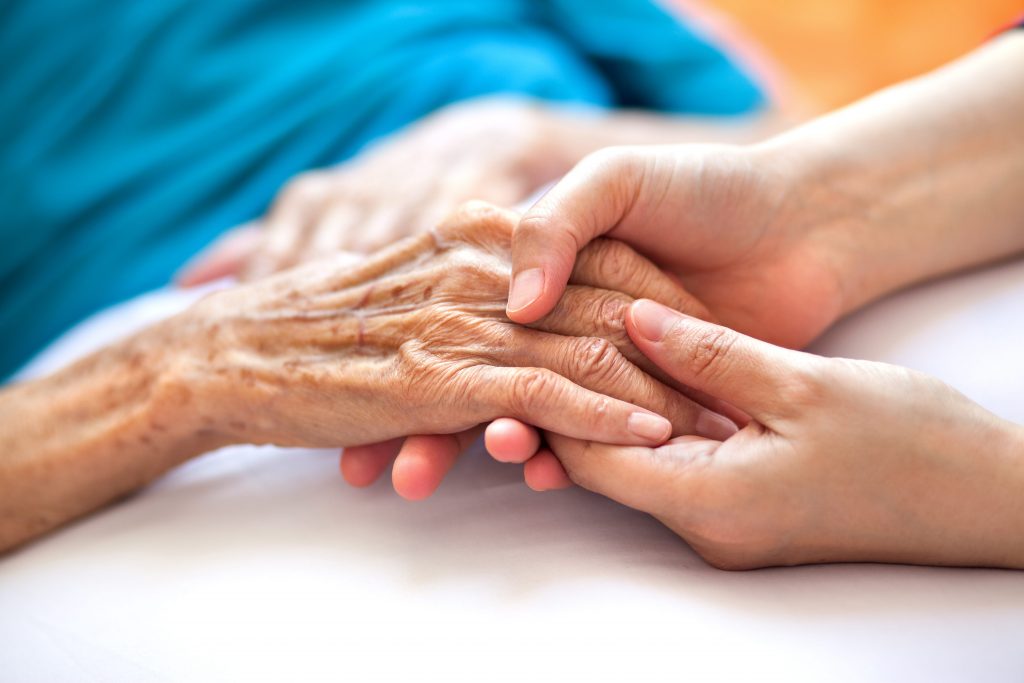
What types of mental illness or conditions are people susceptible to when they are older?
The common mental ailments we see affecting old people in Singapore include depression, anxiety disorders, and dementia.
What signs or symptoms should you look out for?
Depression
Late-life depression is frequently under-recognized as it tends to be assumed to be a normal aspect of ageing and often attributed to medical conditions.
Symptoms of depression include:
- A prolonged period of low mood, lasting more than two weeks, associated with other following symptoms, such as
- Disturbed sleep (difficulty falling asleep or sleeping excessively)
- Change in appetite (decrease or increase in appetite)
- Difficulty concentrating
- Loss of interest in activities that were enjoyed in the past
- Lacking in energy
- Feelings of worthlessness or excessive guilt
- Suicidal ideation
Clinical features seen specifically in depression in the elderly include: a lack of feeling of sadness, prominent somatic (bodily) complaints such as preoccupation with bowel function, unexplained health worries, multiple primary care visits without resolution of problems, heightened pain experience, cognitive complaints such as poor memory, social withdrawal and functional decline.
Anxiety
Anxious older adults experience greater loneliness, more physical activity limitations and less satisfaction with their lives compared to non-anxious elderly. Generalised Anxiety Disorder (GAD) is highly prevalent in the elderly.
Old people with Anxiety Disorder frequently worry about a range of topics, such as family, health, finances, social/interpersonal matters, and tend to report restlessness, irritability, fatigue and muscle tension. Obsessional and phobic disorders are less common in the elderly.
Dementia
Dementia is a general term for a decline in mental ability severe enough to interfere with daily life. In patients with dementia, brain cells die at a faster rate than normal, leading to failing memory, deterioration of intellectual function and personality changes. It is not part of normal ageing.
The onset of Alzheimer’s dementia is gradual and early dementia may be missed. Symptoms include poor short-term memory, repeatedly asking the same questions, difficulty with naming, misplacing things, personality changes and deterioration in functioning. As the illness progresses, patients may lose track of time and events, wander and get lost, and may become irritable and agitated. In severe dementia, they may not even recognize family members and become totally dependent on others for their activities of daily living.
What treatments are available for these conditions?
Depression

Depression is treated using medications, psychotherapy, or a combination of both and social interventions.
Antidepressants are medications that aim to correct chemical imbalances of neurotransmitters in the brain that are believed to be responsible for changes in mood and behavior.
Psychotherapy involves finding out what makes a person depressed, what he is thinking of, the way he thinks and aims to alter abnormal thinking and behaviour. For instance, Cognitive behavioural therapy (CBT) aims to change the way a person feels by correcting negative views of themselves, their future and their environment.
Electroconvulsive therapy (ECT) is a very effective treatment for depression, undertaken if there is poor response or severe side effects arising from medications, if a rapid response is required (such as severely suicidal and refusal to eat) and where significant psychotic features are present. It is safe and effective, although the elderly are prone to side effects such as short-term memory loss and confusion, especially in those with pre-existing cognitive deficits.
Anxiety
Antidepressants known as Selective Serotonin Reuptake Inhibitors (SSRIs) have become first-line treatment of anxiety disorders in the elderly.
Other than medication, psychological intervention can also be used. This includes providing psychoeducation and supportive work, as well as teaching muscle relaxation and deep breathing techniques. Overall, cognitive-behavioural therapy (CBT) is effective for anxiety disorders.
Dementia
There is no cure for Alzheimer’s dementia. However, medications can be prescribed to slow the progression of illness in the early, middle and even later stages of dementia. Other medications such as antidepressants can be used to treat depression, while antipsychotics are used to treat hallucinations and paranoia, which can be seen in dementia.
Psychological approaches include helping to orientate patients (reality orientation) or focus on meaningful activities of the past (reminiscence therapy). Cognitive retraining seeks to improve a person’s skills to decrease everyday problems, thereby improving the quality of their lives. Behavioral modifications are applied to help patients change specific problematic behaviours.
For all the above conditions, social interventions such as working with families is important as they play contributory roles in understanding the cause of the condition, and influence outcome and management. Referrals to appropriate agencies such as daycares, befriender’s services and family service centres, will help in the aftercare.
How can we care for seniors with mental health conditions?
- Be patient, listen and understand, show respect. We all slow down with age and our loved ones did not choose to have the illness. Recognize and acknowledge any fear or anxiety experienced by them.
- Be sensitive. Do not make judgemental remarks or stressful demands such as expecting him or her “to simply snap out of it.”
- Offer encouragement, build confidence and praise small steps of progress.
- Provide companionship, do not let him or her cope alone.
- Encourage medication adherence, supervise medication and ensure follow-up appointments are attended.
- Help them keep a healthy lifestyle. Encourage fun activities based on the patient’s interests. Discourage them from taking illicit drugs, alcohol and from smoking.
- Help the patient identify stressors and cope with stress.
- Do not ignore remarks about suicide, alert the mental healthcare professional, provide reassurance and offer hope.
- For patients with dementia, it is important to maintain a sense of what is actually going on around him or her, such as using a white board to show clear daily routines, big calendars for noting down events and medical appointments, big clocks, preferable with second hand, photographs and things familiar to the elderly. Family members can even read newspapers together with them and discuss current affairs.
- For all the above conditions, social interveIt is important to ensure a safe home environment to reduce the risk of falls in the elderly.





